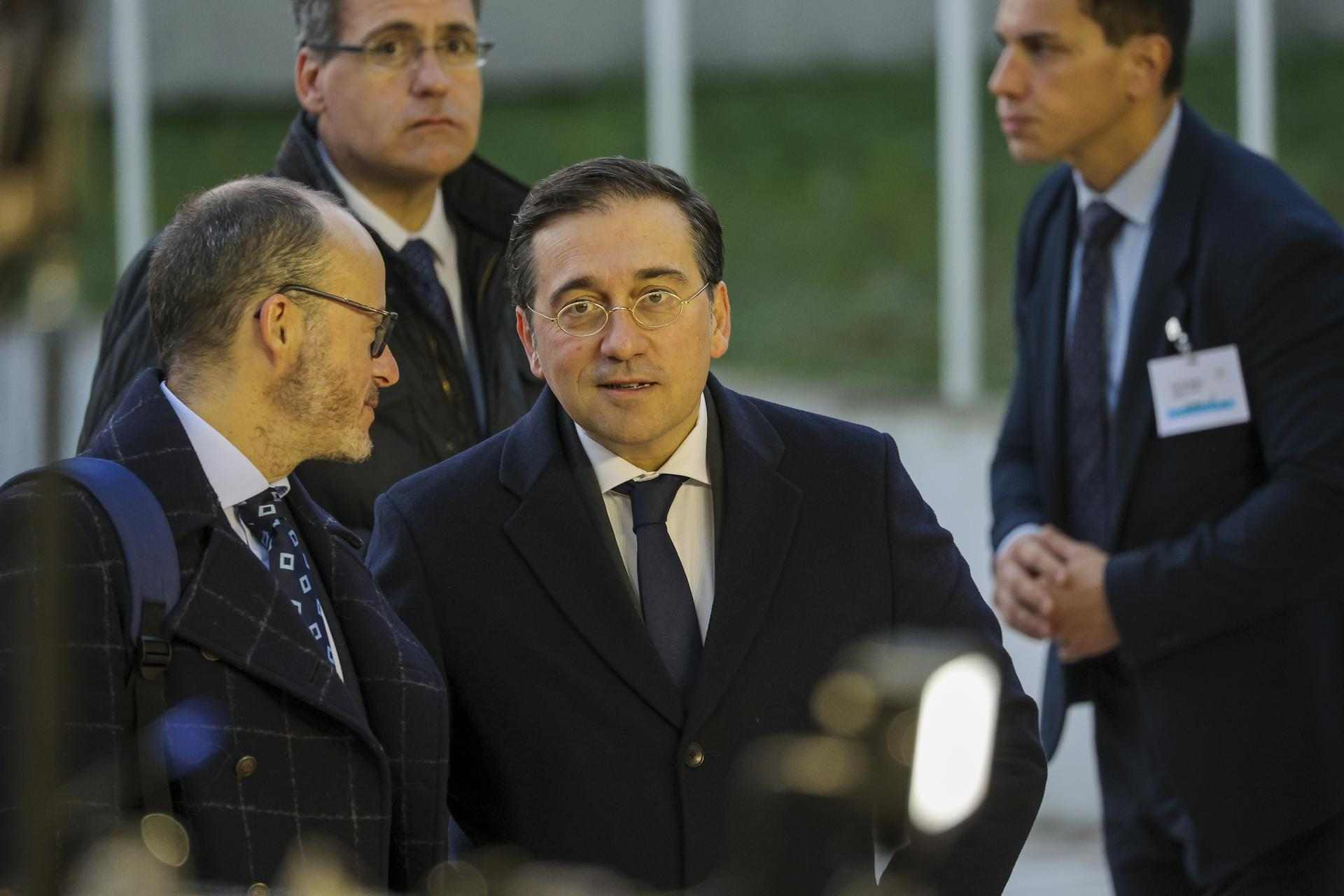Spain is not easing off in its efforts to achieve official EU language status for Catalan, in which the investiture of a new Spanish government under Pedro Sánchez is also at stake. The acting foreign minister, José Manuel Albares, has had a telephone conversation with his Latvian counterpart, Krisjanis Karins, who before the start of this morning's General Affairs Council meeting bluntly criticised the debate on the proposed official language status for Catalan, Galician and Basque in the EU. At the entrance to the meeting, the Latvian politician asserted that there was no intention at present to expand the number of official languages in the EU. He criticized that at a time when Europe's strategic situation is in play, the Union's foreign affairs officials are having to devote their time to this linguistic issue. Between the lines of Latvia's reluctance, which Lithuania also echoed in the meeting, is the fear that the incorporation of new official languages claimed by the Spanish state will provoke a similar claim by Russian minorities in their countries.
At the end of the meeting, as ElNacional.cat was able to learn from Spanish government sources, Albares had a telephone conversation with Krisjanis Karins to explain to him that the "adapted proposal" presented by Spain today guarantees that the reform of the regulations to incorporate Catalan, Spanish and Basque among the official languages is such that "it won't affect them if they don't want it to". The two ministers agreed to continue talking about the issue in the coming weeks, before the General Affairs Council meets again in mid-November.
Decision of each state
Albares had already deployed this same argument during the meeting with the rest of the EU ministers, to whom he assured that the situation of Catalan, Galician and Basque is not similar to any other EU language. According to the minister, the three languages are recognized as official in the Spanish Constitution; they already have recognition at different administrative levels of the EU; they can, now, be used in Spain's houses of parliament, the Congress and the Senate; they have their own translation of the Treaties of the Union now deposited; and the size of the populations that speak them - at least in the case of Catalan - exceeds the numbers who speak many other already-official EU languages.
Nevertheless, before the start of the meeting of the General Affairs Council held this Tuesday in Brussels, the Latvian foreign minister made clear his conviction that "at this moment" the number of official EU languages will not be increased. "I don't think at the moment this is the number one issue we need to discuss. We have many issues on the table. We have geopolitics and the strategic position of Europe in the future. That's what I think we need to focus our time on right now," he argued.
At the end of the meeting, during which Albares insisted that all the expenses generated by the decision to grant official status to the three languages will be assumed by Spain, the Spanish minister stressed that no EU member state had expressed a veto to the Spanish proposal and that the request for the language change will follow its course once the report being prepared for the Commission on the budgetary implications of the measure is completed.

